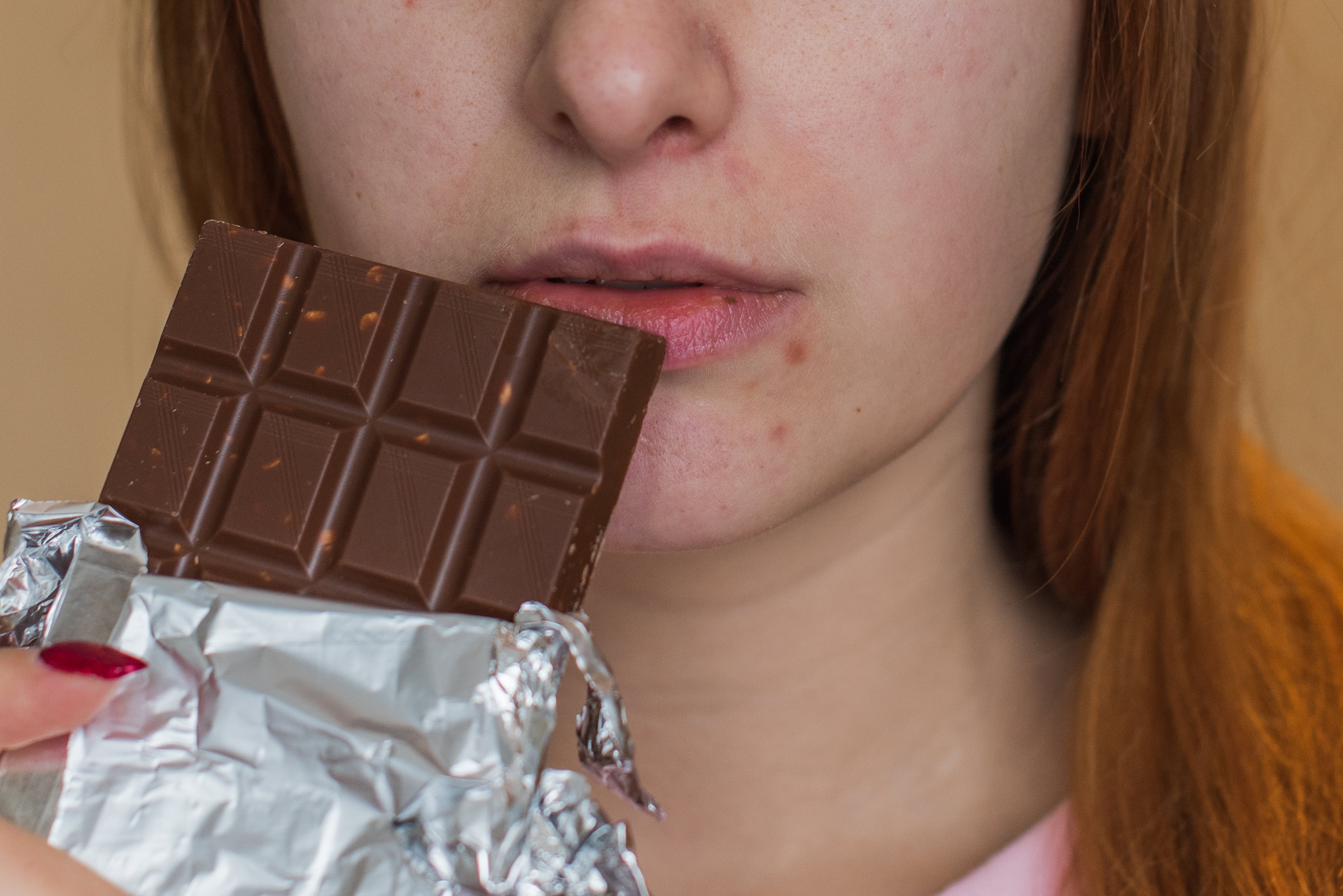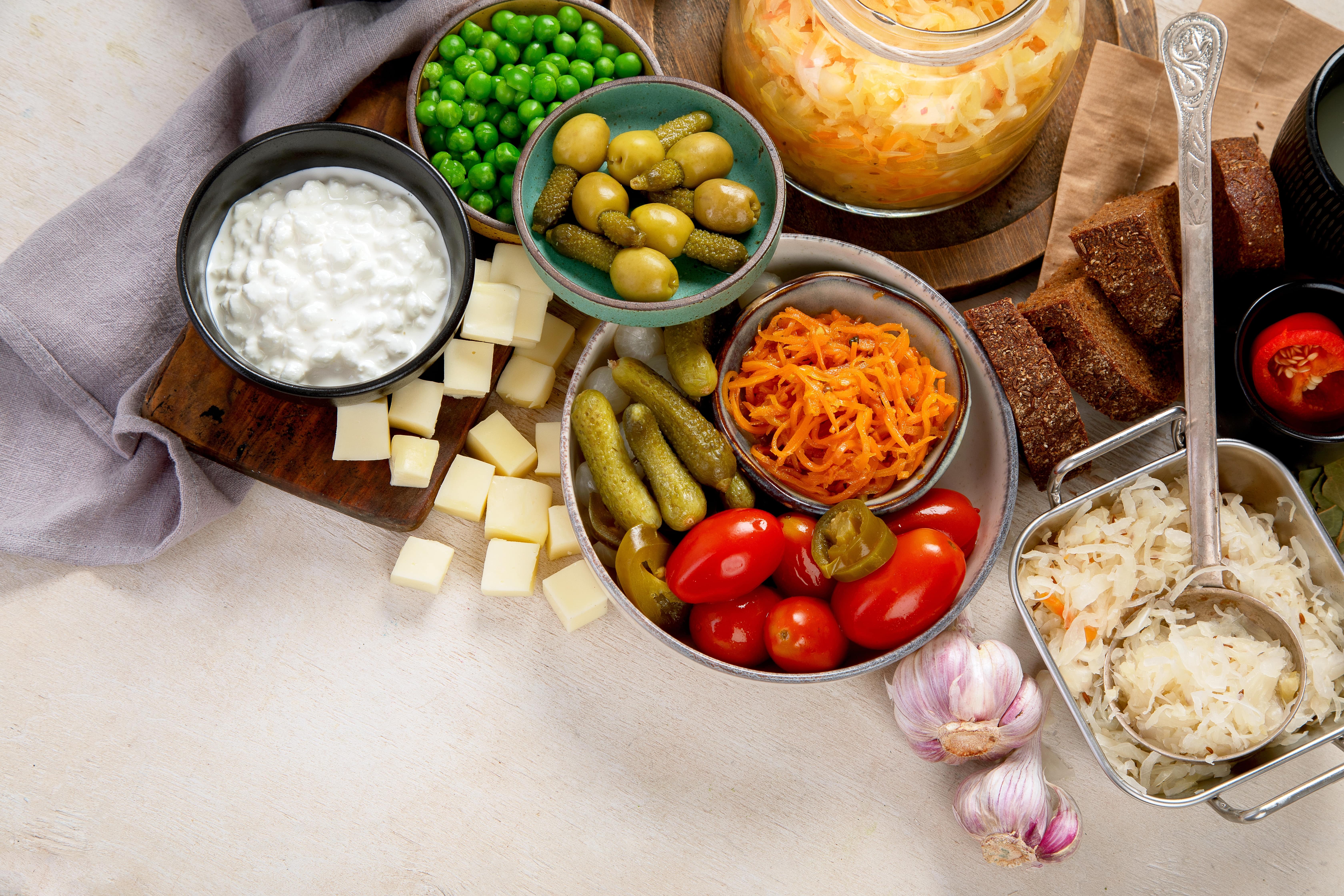Biohacking Your Health: The Top 4 Foods That Can Help Manage Acne
Last Updated: 24 October 2025

Acne is one of the most common skin concerns in the UK. While many people turn to topical creams or medical treatments, nutrition is increasingly recognised as a powerful way to support skin health from within. The insights provided in this article are from Vivere’s Head of Nutrition, Yusra Serdaroglu Aydin, a registered dietitian with expertise in nutrition, food engineering and culinary arts. Yusra’s approach is rooted in science and shaped by her understanding of personalised nutrition and the human microbiome, helping to uncover how diet can play a role in managing acne.
Key Takeaways
Here are the five biggest takeaways from this article about foods that can help manage acne:
Certain foods can reduce inflammation and balance hormones, supporting clearer skin.
Dairy and high-glycaemic foods may contribute to acne flare-ups in some individuals.
Omega-3 fatty acids, antioxidants and probiotics can promote a healthier skin barrier.
A diet rich in whole foods helps regulate the gut-skin axis, reducing acne risk.
Personalised nutrition is key, as acne triggers vary between individuals.
The Connection Between Diet and Acne
Acne occurs when hair follicles become clogged with oil and dead skin cells. Hormones, genetics and lifestyle can all play a role, but research increasingly shows that what we eat influences skin health too [1] [2] [3]. Foods can impact hormone levels, blood sugar spikes and gut health, all of which are linked to acne. By making informed choices, it may be possible to reduce breakouts and support healthier skin.
Foods That May Worsen Acne
Dairy Products
Studies have suggested a link between dairy consumption and acne, particularly skimmed milk [4]. Dairy can influence insulin-like growth factor 1 (IGF-1), a hormone that may increase oil production and trigger acne. While not everyone is affected, reducing milk, cheese and yoghurt may benefit some people. Alternatives like oat or almond milk can provide variety without the same effect.
High Glycaemic Foods
Foods with a high glycaemic index (GI), such as white bread, sugary drinks and processed snacks, can cause blood sugar spikes. This raises insulin levels, which in turn stimulates oil production and increases inflammation, both of which can aggravate acne. Swapping to wholegrain bread, oats and brown rice provides a steadier energy release and may reduce skin flare-ups [5] [6].
Fast Food and Processed Fats
Fried foods, fast food and products high in trans fats can contribute to systemic inflammation [7]. This inflammation can occur in the skin, worsening acne symptoms. Limiting fast food and choosing healthier cooking oils like olive or rapeseed can make a difference.
Experience the benefits of Vivere's premium-grade extra virgin olive oil for yourself today.

Foods That May Support Clearer Skin
1) Omega-3 Fatty Acids
Omega-3 fatty acids found in oily fish such as salmon, mackerel and sardines are known for their anti-inflammatory properties. Including these in the diet two to three times per week may help balance the skin’s inflammatory response. Plant-based sources include chia seeds, flaxseeds and walnuts [8] [9].
2) Antioxidant-Rich Foods
Vitamins A, C and E, as well as zinc and selenium, play key roles in skin repair and protection. Berries, citrus fruits, leafy greens and nuts provide a rich source of antioxidants. These nutrients protect skin cells from oxidative stress, which can worsen acne and slow healing [10].
3) Probiotic Foods
The gut microbiome plays a critical role in overall health, including skin health. Fermented foods such as kefir, sauerkraut, kimchi and miso can help diversify the gut microbiota. A healthy gut may reduce inflammation and regulate immune responses linked to acne [11] [12].
4) Fibre-Rich Foods
Fibre helps regulate blood sugar levels and supports gut health. Whole grains, legumes, fruit and vegetables provide essential fibre that keeps digestion steady and promotes a healthier gut-skin axis. This may indirectly reduce acne flare-ups [10] [13].
Hydration and Acne
While water alone will not cure acne, staying well-hydrated supports overall skin health [14] [15]. Adequate hydration helps maintain elasticity and supports the skin barrier. Herbal teas and water-rich foods such as cucumber and watermelon can add to daily fluid intake.
Lifestyle Factors to Consider
Although diet is important, acne is influenced by a range of factors. Stress, sleep, personal hygiene and exercise all play a role in skin health. Chronic stress can increase cortisol, which may lead to more oil production and inflammation [16] [17].
Adequate sleep and regular exercise help balance hormones, reduce stress and improve circulation, all of which support clearer skin [18] [19] [20].
A lack of personal hygiene can cause excess oil buildup, increasing the risk of acne.
Try dry brushing to enhance your skin health.
Personalised Nutrition and Acne
Every person’s skin responds differently to food. While some people notice improvement by reducing dairy, others may find that cutting back on high glycaemic foods makes more impact.
Personalised nutrition, guided by evidence and expert support, is the most effective way to understand your unique triggers and build a diet that supports both gut health and skin health. At Vivere, we provide personalised nutrition plans, backed up by the results of our gut microbiome tests.
By following the recommendations we provide on the back of your gut test, you can improve you gut health, which in turn will benefit issues such as acne, as well as overall health and well-being.
Nutritionist's Corner: Final Thoughts
"Acne is a complex condition influenced by hormones, lifestyle, genetics and diet. Making mindful choices about the foods you eat can have a significant impact on skin health. Limiting dairy and high-glycaemic foods, while focusing on omega-3s, antioxidants, probiotics and fibre, supports the body’s natural defences against inflammation. Combined with good sleep, stress management and exercise, these strategies can help many people achieve clearer skin".
Vivere helps you take control of your health with personalised insights from state-of-the-art gut microbiome testing, nutritional guidance, science-backed supplements, NAD+ injections and expert support. Sign up today and start living better, for longer.
Sources
[1] Effects of Diet on Acne and Its Response to Treatment - PMC
[2] The relationship of diet and acne: A review - PMC
[4] Diet and acne: A systematic review - PMC
[6] Diet and acne - Science Direct
[7] Does diet really matter when it comes to adult acne? - Harvard Health
[10] Significance of diet in treated and untreated acne vulgaris - PMC
[11] The effect of probiotics on immune regulation, acne, and photoaging - PMC
[12] Acne vulgaris, probiotics and the gut-brain-skin axis - back to the future? - PMC
[14] Dietary water affects human skin hydration and biomechanics - PMC
[15] Myths, Perceptions and Practices in Acne: A Study on Adolescents and Young Adults - PMC
[16] The association between stress and acne among female medical students in Jeddah, Saudi Arabia - PMC
[18] Acne Severity and Sleep Quality in Adults - PMC
[19] Sleep in dermatologic conditions: A review - ScienceDirect
[20] The Potential of Exercise on Lifestyle and Skin Function: Narrative Review - PMC
Author

Yusra Serdaroglu Aydin, MSc RD
Head of Nutrition and Registered Dietitian
Yusra is a registered dietitian with a multidisciplinary background in nutrition, food engineering, and culinary arts. During her education, her curio...